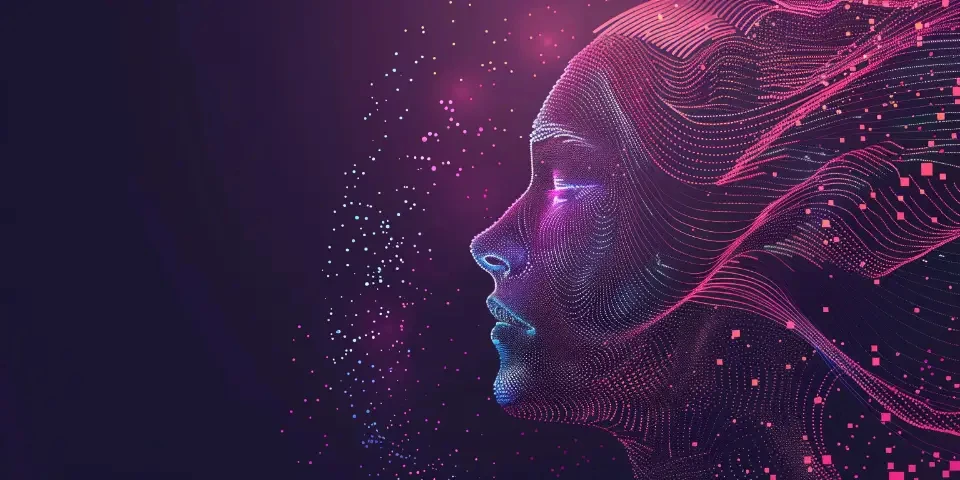Transforming Education AI-powered personalized learning
Education plays a critical role in shaping the future of individuals and societies. As technology continues to advance, the potential to transform education through AI-powered personalized learning has become increasingly evident. This innovative approach to education holds the promise of addressing diverse learning needs, improving engagement, and enhancing the overall educational experience. Here are several key aspects of AI-powered personalized learning that are revolutionizing education:
1. Individualized Learning Paths
AI-powered personalized learning allows students to follow individualized learning paths tailored to their specific needs and interests. By leveraging machine learning algorithms, educational platforms can identify each student's strengths, weaknesses, and learning style. Based on this analysis, curated content and resources are presented to students, optimizing their learning experiences.

This approach ensures that students can learn at their own pace, focusing on areas where they require additional support or challenging themselves with advanced concepts. Personalized learning paths empower students to take ownership of their education and unlock their true potential.
2. Adaptive Assessment
Traditional assessments often provide a limited view of a student's knowledge and capabilities. AI-powered adaptive assessments, on the other hand, continuously evaluate students' progress and adjust the difficulty level and content accordingly. This enables real-time measurement of a student's growth and allows educators to provide timely interventions or tailored feedback.
By adapting assessments to each student's level of knowledge, personalized learning ensures that students are neither overwhelmed nor bored. It fosters a deeper understanding of the subject matter and facilitates a more accurate evaluation of students' skills and competencies.
3. Intelligent Tutoring Systems
Integrating AI into educational platforms enables the development of intelligent tutoring systems that can provide personalized guidance and support to students. These systems utilize machine learning algorithms to analyze students' performance and provide targeted suggestions or explanations to improve their understanding.
Intelligent tutoring systems can simulate one-on-one interactions between students and educators, offering instant assistance and responding to individual learning needs. This personalized support fosters a supportive learning environment, enhances motivation, and increases student engagement.
4. Enhanced Content Recommendation
AI-powered personalized learning platforms can effectively recommend relevant and engaging educational content to students. By analyzing students' preferences, previous interactions, and learning objectives, these systems curate a personalized set of resources that cater to individual interests and learning styles.
This approach ensures that students have access to a wide array of high-quality materials, including interactive videos, simulations, and online textbooks. By presenting content that aligns with their interests, personalized learning keeps learners engaged and motivated, leading to a deeper understanding and retention of knowledge.
5. Collaborative Learning Opportunities
AI-powered personalized learning not only focuses on individual progress but also promotes collaboration among students. Online platforms equipped with AI features facilitate peer interactions, group projects, and virtual discussions.
Through collaborative learning, students can develop critical skills such as communication, teamwork, and problem-solving. AI algorithms can also identify suitable team compositions, taking into consideration students' strengths and weaknesses. This approach encourages social learning and the exchange of diverse perspectives, creating a dynamic and enriching educational experience.
6. Continuous Feedback Loop
One of the significant advantages of AI-powered personalized learning is the ability to provide continuous feedback to both students and educators. Through data analytics, AI algorithms can identify patterns, trends, and areas that require improvement.
Students receive immediate feedback on their performance, highlighting areas of strength and areas that need further attention. Educators can also benefit from real-time insights, allowing them to make data-driven instructional decisions to better support their students.
7. Overcoming Learning Challenges
A personalized learning approach powered by AI can help address various learning challenges. For example, students with learning difficulties or disabilities can benefit from tailored interventions and additional support. AI algorithms can adapt educational content and resources to accommodate various learning needs, ensuring equal opportunities for all students.
Furthermore, personalized learning can also mitigate the negative effects of educational gaps caused by factors such as socioeconomic disparities or school closures. AI-powered platforms can deliver educational content remotely, enabling students to continue their education irrespective of physical or geographical boundaries.
Frequently Asked Questions:
Q: How does AI ensure data privacy in personalized learning?
A: AI-powered personalized learning platforms prioritize data privacy and employ rigorous security measures to protect student information. Encryption techniques, strict access controls, and anonymization methods are utilized to safeguard sensitive data and ensure compliance with privacy regulations.
Q: Can AI replace human educators in personalized learning?
A: AI is not intended to replace human educators; rather, it enhances their capabilities. AI-powered platforms provide educators with invaluable insights into student progress, enabling them to individualize instruction and provide targeted support. Human interaction and guidance remain vital for fostering a holistic educational experience.
Q: Does personalized learning through AI eliminate the need for traditional classrooms?
A: While AI-powered personalized learning platforms offer flexibility and accessibility, physical classrooms still hold significant value. The social aspects of traditional classrooms, such as face-to-face interactions and hands-on activities, contribute to well-rounded education. Blending personalized AI-driven learning with traditional classroom settings can yield the best of both worlds.
References:
1. Smith, T., & Cardellini, L. (2020). Artificial Intelligence in the Classroom: A Comprehensive Guide for Educators. Apress.
2. Vitiello, G. (2021). Transforming Education with AI: How Artificial Intelligence Shapes Education. Springer.
3. Baker, R. S., & Inventado, P. S. (2014). Educational data mining and learning analytics. Proceedings of the 7th International Conference on Educational Data Mining.
Explore your companion in WeMate